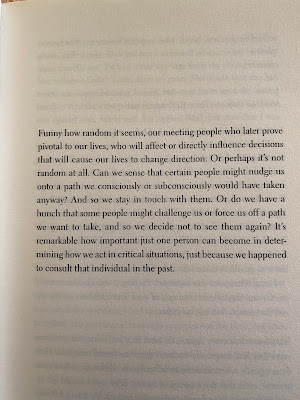I read this passage in a moment when I was thinking about influence and different paths that lead to different versions of yourself/your life:
Dealing with the aftermath and trauma of childhood sexual abuse, Hjorth makes use of Freudian proposals around exploring repressed memories and containing anger - she examines how people use extreme thinking and lies to justify their actions and render their enemy worse, all bad, to ensure a clear narrative of victim and aggressor. Interwoven with Freud's theories on repression and anger are conversations the protagonist has with a friend on war mentalities - specially in relation to Israel/Palestine. They discuss the slippery slope of abuse, where victim can become aggressor and use justifications for attacks - how victims inherit beliefs and narratives use them to justify self-defence or acts of aggression.
What would it mean to end the cycle of violence and not to use the comfort of 'victim status' to perpetuate suffering? What might a person have to confront and absorb to ensure they don't become the next aggressor? What is the cost of this absorption and how can a person manage their self-destructive impulses to be freed by the truth, and healed by the recognition of others of this truth? What happens when you don't get the recognition from the people you want it from?
The protagonist's friend describes his discomfort in Jerusalem and Tel Aviv which mirrors almost perfectly what I felt on my visit in 2018. In sum, the strange atmosphere where a modern and shiny city was built with walls that keep perceived threats or aggressors out - these walls hide the suffering of others and support those inside to try to forget what sits behind those walls and live under illusions of peace, kindness, happiness and fairness. To truly heal however is to acknowledge the blurred lines of victim/aggressor, not to conceal your aggressions behind sophisticated architecture and technology but to endure the ambiguity, acknowledge the suffering and manage this alongside the good without self-destructing acts or shame.



No comments:
Post a Comment